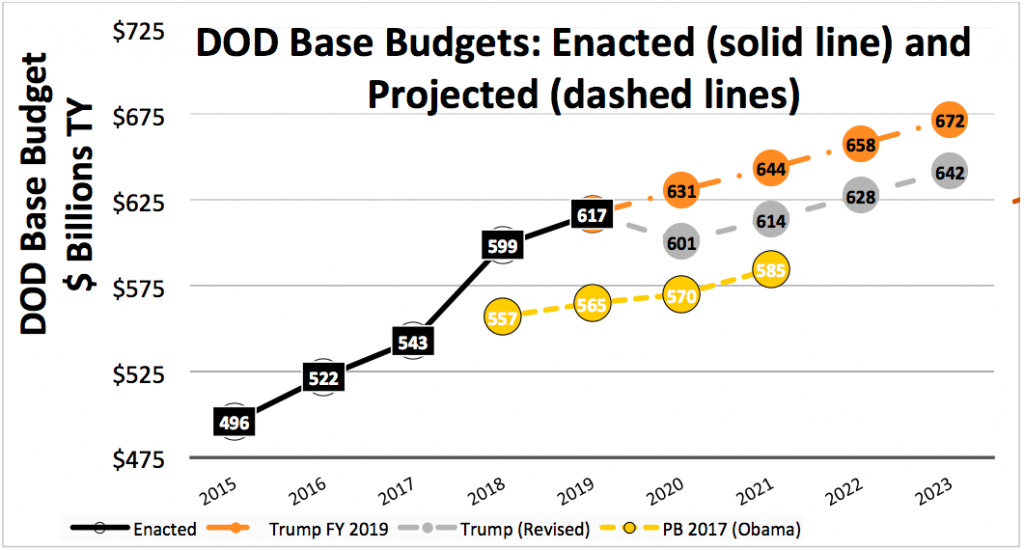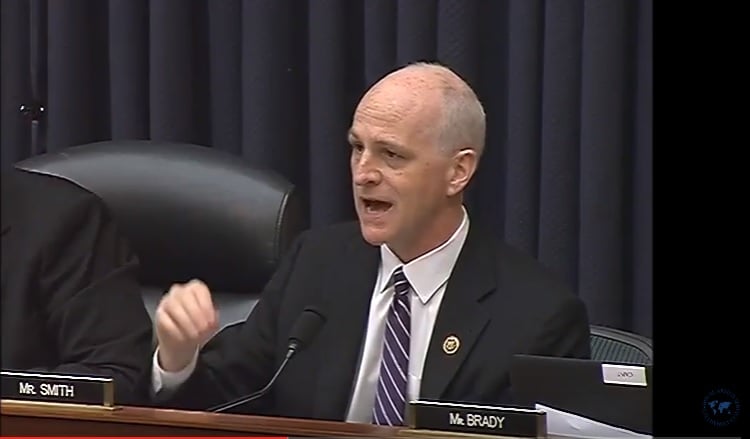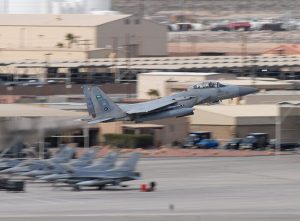
WASHINGTON: The Democrats’ recapturing the House means three major impacts on the Defense Department: The odds are that controversial Trump priorities like new nuclear weapons and a Space Force will go nowhere, defense budgets will go down, and oversight will go up, up, up.
Program winners and losers
The most likely losers are nuclear modernization programs, which leading Democrats like Adam Smith, the prospective House Armed Services Committee chairman, have criticized as unnecessary, excessive, and destabilizing.

President Obama had supported nuclear modernization as the price for ratifying the New START treaty, the theory being that the United States would be secure with fewer nuclear weapons if that remaining inventory were modernized. That means the programs that were not in Obama’s plans would be most vulnerable, particularly the low-yield nuclear weapon and the Long Range Stand-Off cruise missile (LRSO). The low yield weapon has been called dangerous because it arguably makes it easier to escalate from conventional to nuclear warfare. The cruise missile has been called unnecessary, since US bombers already have other nuclear weapons like the B61 variable-yield bomb, although proponents argue that non-stealthy bombers like the B-52 will only be able to hit defended targets with a long-range weapon.
The Minuteman ICBM replacement, the Ground-Based Strategic Deterrent, will also come under Democratic fire, even though the Obama administration had supported it. Why? Many arms control advocates have long criticized land-based missiles as so vulnerable to a first strike that it’s potentially destabilizing, since the president may feel forced to “use it or lose it” during a crisis. Conversely, the Columbia-class ballistic missile submarine will continue because of the consensus that this leg of the triad is the most survivable. The B-21 bomber will also continue since it has a large conventional mission, but it could be delayed.

Trump’s proposed Space Force is another loser. There are arguments for (increased focus on the domain of the future) and against (too much additional overhead), but such strategic considerations will be overwhelmed by the fact that this is a personal initiative of the president — who in turn picked up the idea from Republican Rep. Mike Rogers, who will lose much of his clout with his Strategic Forces subcommittee chairmanship. It is unlikely that a Democratic House will give Trump such a visible political accomplishment.
Program winners are likely to be in the social and cultural area. Transgender servicemembers can expect strong support, as can advocates for women’s programs. There may, for example, be another push to expand protections against sexual assault, though the last National Defense Authorization Act already had several initiatives in this area.

An increasingly uncertain — but almost certainly lower — budget topline
Rep. Smith, the presumptive chairman of the House Armed Services Committee, has been widely quoted as saying that the defense budget is too high. Admittedly, few of his fellow Democrats have made similar statements — defense was not a major election issue, so no one was forced to take controversial positions — which means legislators have left themselves plenty of room to maneuver.
What campaign promises do make clear, however, is that the Democratic Party has moved to the left and would like to initiate a lot of very expensive domestic programs. None of these will get through a Republican Senate, but Democrats will probably see defense as a budget competitor.

That said, for the past five years or so the Democrats have been willing to support increases in defense spending if matched by increases in domestic spending. In the 2013, 2015, and 2018 budget deals, Republican leadership has gone along with this principle of “parity” to get the defense increases advocated by defense hawks — who still a powerful force — and to avoid a government shutdown that would stain their reputation as the governing party. (Defense hawks sometimes get around parity by using war funding, aka Overseas Contingency Operations or OCO).
The wildcard is the Democratic left. If they insist on policy riders in the defense bills — maybe about abortion, overseas deployments, or immigration — then everything could grind to a halt. But it’s more likely the pattern of parity will continue: more domestic spending in exchange for defense spending. With the Republican deficit hawks in the House having lost influence even before they became a minority of the minority, the resulting deficits don’t seem to bother anyone…..
…. except President Trump’s budget director, Tea Party congressman turned OMB chief Mick Mulvaney, who prevailed on the president to direct a $30 billion cut below the previous plan for 2020. That’s a four percent cut from planned spending and 2.3 percent below actual appropriations for 2019. (Counting cuts to non-D0D national security accounts in the Energy Department, the total reduction is the oft-cited $33 billion). That means the defense budget is now under fire from both left and right, making it highly likely that FY 2019 was peak defense.

More oversight
Opposition parties always criticize the administration’s supporters in Congress for not being more aggressive in overseeing the budget and government activities.. Hearings provide a mechanism by which an opposition party can publicly question the administration, stir up its base, and prepare the ground for legislation in the long term, even it’s if not politically viable in the short term. Control of the House will let Democrats not only ask questions but choose the topics for the hearings. Two particular areas of friction have been the use of military force and support for the Saudis.
The Bush, Obama, and now Trump administrations have all justified overseas conflicts based on the Authorization for the Use of Military Force from 2001. Critics argue that many current operations were never envisioned when that authorization was passed in the frantic days after 9/11. Therefore, expect there to be hearings and discussion about a new authorization. This debate also provides Democrats a platform to criticize the conduct of military operations and, in Afghanistan particularly, the lack of success after almost two decades of war.

Another area of tension is support to the Saudis, particularly as it has enabled the war in Yemen. The Khashoggi murder has further strained the relationship. Expect, therefore, House committee hearings that criticize arms sales to Saudi Arabia and perhaps explore ways to constrain future arms sales in general.
Finally, political pundits forecast that House congressional committees will be pushed to investigate Pres. Trump and his business dealings. It’s not clear whether defense committees will participate in this effort, but some may try.
As recently as September, defense seemed to be on a good trajectory with a budget passed before the beginning of the fiscal year, a solid strategy, and a topline forecast that was at least adequate. All that has now been thrown up in the air. The silver lining to this disruption? It gives us in the think tanks a lot to write about. Stay tuned.

